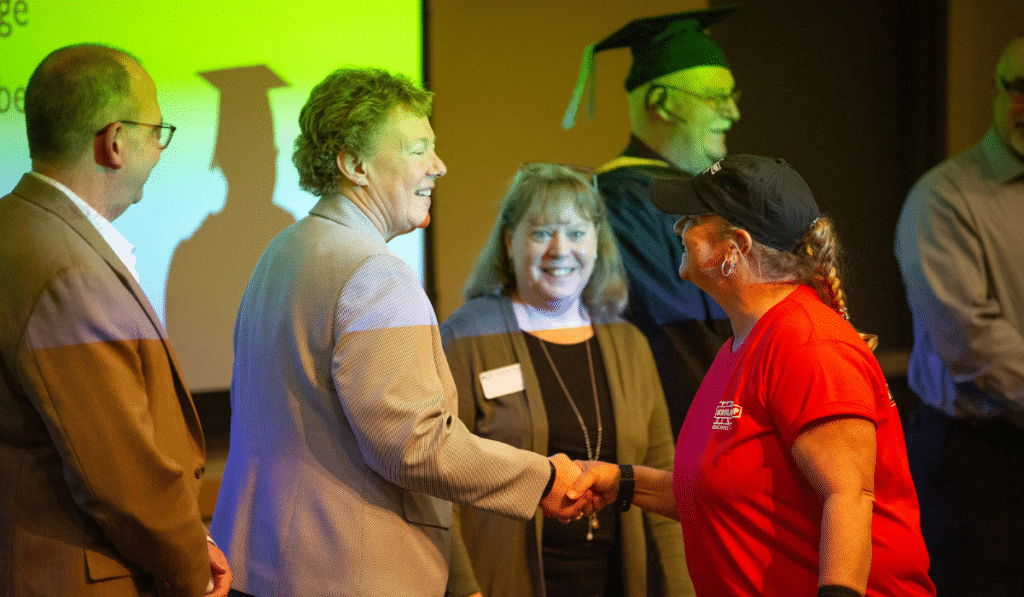
Workforce Advancement Training (WAT) grants were awarded from the Wisconsin Technical College System (WTCS) this summer. Moraine Park’s Economic & Workforce Development team submitted 8 grants for consideration for $1,252,903–the highest in college history. All 8 grants were awarded in full and will support over 42 companies and almost 10,000 hours of training.
Annually, $4 million is available in the competitive application process to fund projects between $2,500 and $200,000 in partnership with a single business or consortium of businesses.
“We are thankful to WTCS for allowing us to support our business partners with this significant grant funding opportunity,” JoAnn Hall, dean of economic and workforce development at Moraine Park, said. “WAT grants allow our partners to keep employee training at the forefront of their strategic initiatives. With continued low unemployment in the region, the fight for talent remains high. These training projects will assist businesses in their employee engagement and retention efforts as they support the skill development of their employees.”
The grants were written for Moraine Park’s Truck Driving and Manufacturing Bootcamps, Continuous Improvement, Industrial Maintenance, Leadership, Manufacturing, and Supervision training programs for incumbent workers.
The Wisconsin Technical College System has awarded WAT grants since 2005 to support employers in their efforts to retain and advance the skills of their workforce. WAT grant funds promote increased investment in the development of incumbent workers, improve Wisconsin businesses’ productivity and competitiveness, and expand technical college training to local businesses and industry.
The grant process involves discussions with company leaders from several business areas to uncover regional challenges and needs such as increasing sales, fulfilling greater customer demands, recruiting and retaining employees, and more. MPTC conducts a business assessment, and in collaboration with individual companies, develops a long-range strategic training plan that focuses on their specific goals.
The grant writing takes place in April, and the stories of specific business challenges and goals are woven in to show how training will have a positive impact on the business. The grant awards are announced each June.
“These practical and academic training programs have led to positive impacts on our employees’ self-confidence by obtaining greater knowledge in areas that might have been unknown to them or they had limited experience or knowledge in,” Dustin Farberg, director of Human Resources at Seneca Foods, said. “When they attend these training programs we firmly believe that they come back more confident, which makes them a better employee, a more productive employee, and it really helps with self-awareness and self-confidence. That is a huge impact to our business.”
